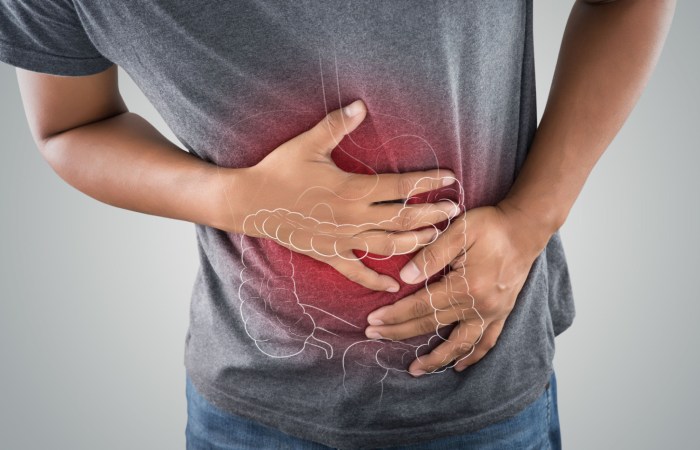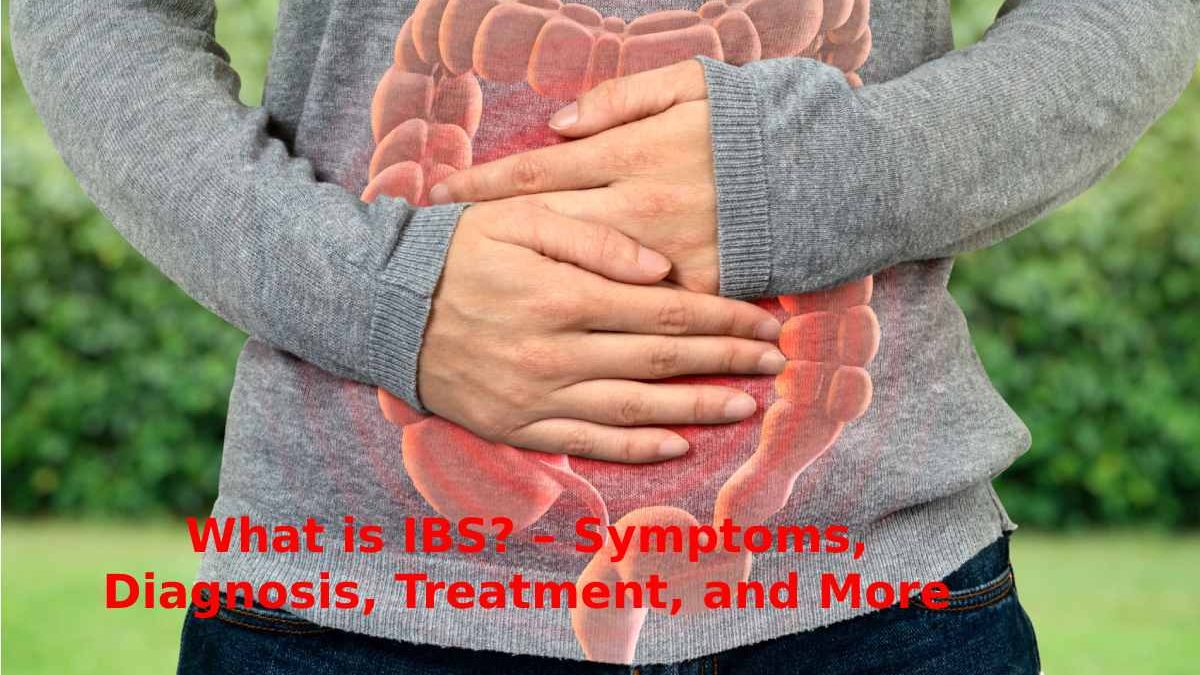Table of Contents
Introduction
IBS is also spastic colon, irritable bowel, mucous colitis, and spastic colitis. It is different from inflammatory bowel disease and is not related to other intestinal conditions. IBS is a set of intestinal symptoms that frequently occur together. Symptoms vary in severity and period from person to person. However, they passed at least three months for three days a month.
In some cases, IBS can cause intestinal damage. However, this is not common. IBS doesn’t increase your risk of gastrointestinal cancer, but it can still significantly affect your life.
Symptoms of IBS
IBS symptoms typically include:
- cramps
- abdominal pain
- bloating and gas
- constipation
- diarrhoea
It is not uncommon for people with IBS to have episodes of constipation and diarrhoea. However, symptoms like bloating and gas usually go away after a bowel movement.
IBS symptoms are not always persistent. They can disappear and then come back. However, in some cases, the symptoms are continuous.
IBS Symptoms in Women
Women may have symptoms when their period is near, or they may have more symptoms. Menopausal women have fewer signs than women who are still menstruating. Some women have also informed that some symptoms increase during pregnancy.
IBS Symptoms in Men
IBS symptoms in men are related to those in women. However, unlike women, men usually do not report their symptoms or seek treatment.
Pain of IBS

IBS pain can feel like cramps. With these cramps, you will also have at least two of the following experiences:
- some pain relief after a bowel movement
- a change in how often you have a bowel movement
- changes in stool appearance
Ibs Diagnosis
Your doctor can diagnose irritable bowel syndrome based on your symptoms. They can also take one or more of the resulting steps to rule out other possible causes of the symptoms.
- may ask you to adopt a particular diet or eliminate specific food groups for some time to rule out any food allergies
- examine a stool sample to rule out infection
- do a blood test to check for anaemia and rule out celiac disease
- do a colonoscopy
A colonoscopy is usually only done if your doctor suspects that your symptoms are affected by colitis, inflammatory bowel sickness (Crohn’s disease), or cancer.
Diet in IBS
For some people, dietary variations can go a long way in relieving symptoms. However, because it symptoms vary among people who have the condition, approaches to dietary changes should vary.
Also Read: What is TMJ? – Problems, Symptoms, Treatment, and More
How to Treat IBS?
It has no cure. Treatment is aimed at relieving symptoms. To start, your doctor may ask you to make specific lifestyle changes. These “home remedies” are usually suggested before the use of medications.
Home Remedies for IBS
Specific home remedies or routine changes can help relieve symptoms without medication. Examples of these lifestyle changes include:
- exercise regularly
- reduce caffeinated beverages that stimulate the intestines
- eat smaller portions
- minimize stress (talk therapy can help)
- taking probiotics (“good” bacteria usually found in the intestines) to help relieve gas and bloating
- avoid fried or spicy foods
Foods to Avoid with IBS
Getting your diet under control can take a little longer when you have IBS, but it’s often worth the effort. Changing amounts or eliminating certain foods such as dairy, fried foods, non-digestible sugars, and beans can help reduce different symptoms. In some cases, adding spices and herbs like ginger, peppermint, and chamomile have helped reduce some symptoms.
Medications for IBS
If symptoms don’t improve with home remedies, such as lifestyle or dietary changes, your doctor may suggest medication. However, each one can respond differently to the same drug, so you may want to work with your doctor to find the correct medicine.
As with all medications, when considering a new one, it’s important to tell your doctor what you’re already taking, including herbal remedies and over-the-counter medicines. It will help you avoid any medications that might interact with what you’re already taking.
What Causes IBS?
Although there are many methods to treat IBS, the exact reason is unknown. The colon or an overly sensitive immune system are possible causes. In addition, a previous bacterial infection causes postinfectious it in the gastrointestinal tract. The diversity of possible causes makes it challenging to prevent.
The physical procedures involved in IBS can also vary but may include:
- slow or spastic movements of the colon, causing painful cramps
- abnormal levels of serotonin in the colon, affecting motility and bowel movements
- mild celiac disease that damages the intestines and causes it symptoms
IBS with Weight Loss
IBS does not disturb the weight of all people with this condition. However, it can cause weight loss if you don’t eat enough to maintain weight and avoid symptoms. Cramps may appear more often immediately after eating. If diarrhoea is one of your typical symptoms, your body may not be getting all the nutrients from the diet you eat. Your weight may fall as a result of this.
Conclusion
An intestinal disorder causes pain in the stomach, wind, diarrhoea and constipation. The reason for irritable bowel syndrome isn’t well understood. Therefore, a diagnosis is often made based on symptoms.
Symptoms include abdominal pain, bloating, diarrhoea and constipation. Some people can control their symptoms by handling diet, lifestyle and stress. Others will need medication and counselling.

